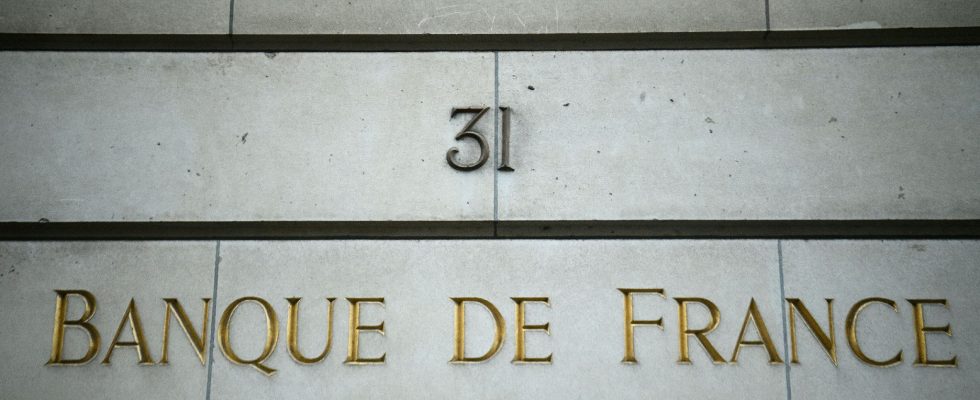It would be wrong to believe the Banque de France becalmed in its glorious past. No question for this institution born in the year 1800 to find itself dropped in the face of the technological revolutions of the blockchain or artificial intelligence which are upsetting the economy and the banking professions. Rue Réaumur, in Paris, a team of about fifteen people is thinking about the financial industry of tomorrow within the “Lab”. 500 meters from the gilding of the Hôtel de Toulouse, a 17th century setting where the parent company sits, next to the Palais-Royal garden. Here, there are no Fragonard paintings on the walls, nor Versailles parquet floors, but a “start-up atmosphere” set, with spaces conducive to creativity. On the right, the rooms where we phosphorus. In the center, the pitch space, its blue and green poufs to present projects, and this glass room where you decide – or not – to move on to the experimentation phase of an idea before discussing its implementation in production. Everywhere are working internal experts, start-ups, fintechs… Because the Lab does not go it alone and presents itself as a “leader of the innovation process”. This original cell, a pioneer in the world of central banks, has since been widely imitated. Latest emulator to date, the Bank of the Republic of Mauritius.
A signal for the banking industry
It is on the use of the blockchain in the payment process that the Lab has reflected since its inception. When you authorize a company – say a telecom operator like Orange – to debit the amount of your subscription each month, a unique payment identifier is required, issued by the Banque de France. Previously, a back-office team handled these requests. The circuit is now automatic: the blockchain responds by giving the payment identifier. This approach was not trivial for the sector. “When the Banque de France says that it is going to use blockchain for a banking process, it is also a signal for the industry. It shows that we are not afraid of this technology and that we are ready to use it” , underlines Thierry Bedoin, director general of the information system of the institution. This project, which went into production in December 2017, was carried out with the support of the French start-up Blockchain Partner.
Post-quantum algorithms
More recently, in the field of cybersecurity, the Lab approached another young tricolor shoot, CryptoNext Security, in order to prepare for a major threat, and not so distant. “The day when quantum computers will be operational, ten or fifteen years from now, encrypted links on the Internet will no longer be secure. Some hackers are starting to store data exchanges in order to be able to crack them when the time comes. We must anticipate and look at ways to strengthen encryption systems, particularly in payments”, describes Thierry Bedoin. The challenge therefore consists in finding security solutions using “post-quantum” algorithms, that is to say, capable of withstanding the formidable computing power of these future machines. On this sensitive subject, the Banque de France is cooperating with the Bundesbank and the monetary authority of Singapore.
Alternative to cryptos
The Lab’s teams are also very mobilized around the digital euro. A subject raised by the Governor of the Banque de France, during a speech at the beginning of July at the Paris Finance Forum. “As our societies move towards ‘all digital’, should central bank money be the only ones that remain in paper form? I imagine that two centuries ago there were voices questioning the principle of issue of banknotes – a major innovation then – in addition to hard and soft gold and silver coins”, pleaded François Villeroy de Galhau. “Work on the subject aims to offer a risk-free alternative to cryptoassets and other stablecoins, these pseudo-currencies which are not always backed by central money, justifies Thierry Bedoin. The objective is to prevent the world of payments is monopolized by Internet giants who would create a private currency over which central banks could not exercise regulation, with risks for financial stability.
For individuals, this e-euro would make it possible to have a dematerialized currency guaranteed by the central bank, in the same way as a ticket printed in Auvergne by the Banque de France, as opposed to the money from a credit card by example, which is the responsibility of the commercial bank. The subject is advancing within the Eurosystem – ECB and central banks of the euro zone – and could materialize in 2027-2028. But the Banque de France is also pushing its investigations into interbank uses such as the payment of securities in central currency and cross-border settlements at lower costs than today. “The challenge is to make banking processes more efficient, by allowing payment in euros in the blockchain”, notes the head of the Banque de France’s information system.
Other innovations, in artificial intelligence, will be able to feed the economic analyzes of the Banque de France, through the use of language models trained on its data. Or produce training content on its own themes. The last call for contributions relates to cybersecurity: the Lab is open to providers of deep fake solutions, to better detect suspicious content. After 200 years, the Banque de France is determined to seize the best, and protect itself from the worst, modernity.
